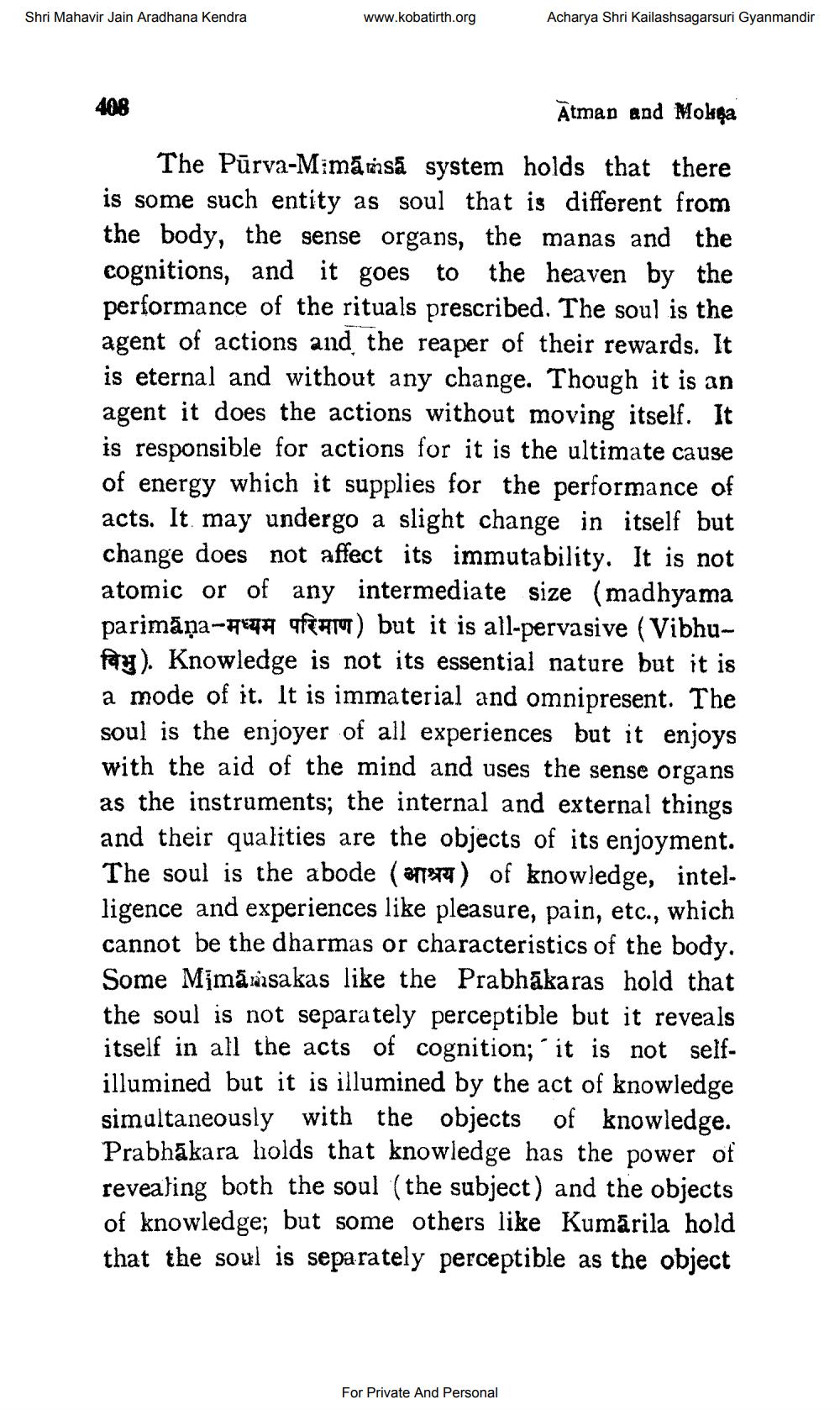________________
Shri Mahavir Jain Aradhana Kendra
www.kobatirth.org
Acharya Shri Kailashsagarsuri Gyanmandir
408
Ātman and Molga
The Pūrva-Mimārsā system holds that there is some such entity as soul that is different from the body, the sense organs, the manas and the cognitions, and it goes to the heaven by the performance of the rituals prescribed. The soul is the agent of actions and the reaper of their rewards. It is eternal and without any change. Though it is an agent it does the actions without moving itself. It is responsible for actions for it is the ultimate cause of energy which it supplies for the performance of acts. It may undergo a slight change in itself but change does not affect its immutability. It is not atomic or of any intermediate size (madhyama parimāņa-- ETH FTHT) but it is all-pervasive ( Vibhufay). Knowledge is not its essential nature but it is a mode of it. It is immaterial and omnipresent. The soul is the enjoyer of all experiences but it enjoys with the aid of the mind and uses the sense organs as the instruments; the internal and external things and their qualities are the objects of its enjoyment. The soul is the abode ( 274 ) of knowledge, intelligence and experiences like pleasure, pain, etc., which cannot be the dharmas or characteristics of the body. Some Mimāläsakas like the Prabhākaras hold that the soul is not separately perceptible but it reveals itself in all the acts of cognition; it is not selfillumined but it is illumined by the act of knowledge simultaneously with the objects of knowledge. Prabhākara holds that knowledge has the power of revealing both the soul (the subject) and the objects of knowledge; but some others like Kumārila hold that the soul is separately perceptible as the object
For Private And Personal




